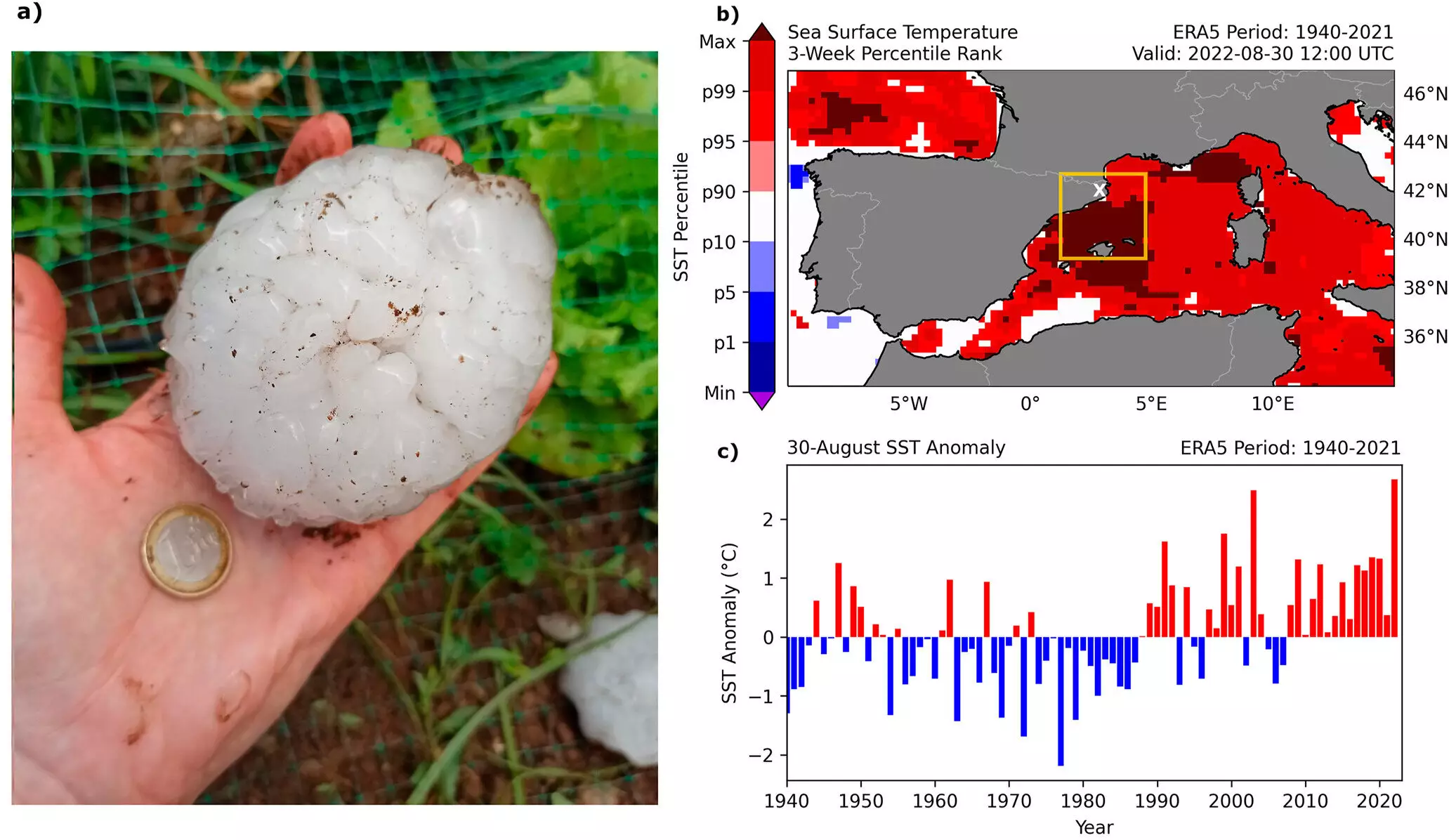One of the most severe hail events ever documented in Spain occurred on August 30, 2022, in Gerona, north-eastern Spain. Hailstones as large as 12cm caused extensive damage to buildings, vehicles, and agricultural areas, resulting in 67 injuries and one fatality. This extreme weather event caught the attention of researchers due to its rarity and severity.
Professor Maria Luisa Martin and her team from Universidad de Valladolid, Spain, published a study in Geophysical Research Letters exploring the link between a record-breaking marine heat wave and the unprecedented hailstorm. The Iberian Peninsula experienced a significant increase in sea surface temperature of 3.27°C over six weeks in the summer of 2022, the highest on record. This rise in temperature contributed to the development of supercells and ultimately led to the formation of the hailstorm.
To delve deeper into the relationship between marine heat waves and hailstorms, the researchers analyzed a dataset of over 280 supercells from 2011 to 2022. By simulating hail events with and without the influence of a marine heat wave in the Mediterranean Sea, the team discovered that increased sea surface temperature plays a crucial role in the frequency and intensity of hailstorms. The simulations revealed that large hail storms could occur approximately four hours per year, with the Maestrazgo region in north-eastern Spain being particularly prone to such events.
As a consequence of global warming, marine heat waves are becoming more frequent and severe. The researchers found that removing marine heat waves from the simulation models resulted in a significant reduction in conditions conducive to hailstorms. This highlights the direct impact of climate change on extreme meteorological events, emphasizing the need for urgent action to mitigate its effects.
The findings of this study serve as a warning of the potential increase in marine heat waves and other interconnected environmental phenomena due to continued climate change. With the likelihood of more frequent and severe hailstorms on the horizon, it is crucial to address the root causes of global warming and its consequences. The environmental, social, and economic impacts of extreme weather events demand immediate attention and action from policymakers and the public alike.
The research conducted by Professor Martin and her team sheds light on the complex relationship between marine heat waves and extreme hailstorms. By understanding the underlying mechanisms driving these phenomena, we can better prepare for and mitigate the impacts of future extreme weather events. It is imperative that we take proactive steps to address climate change and work towards a sustainable future for generations to come.


Leave a Reply